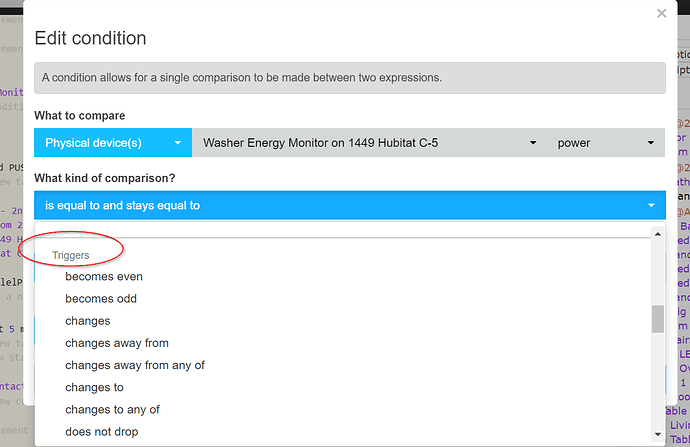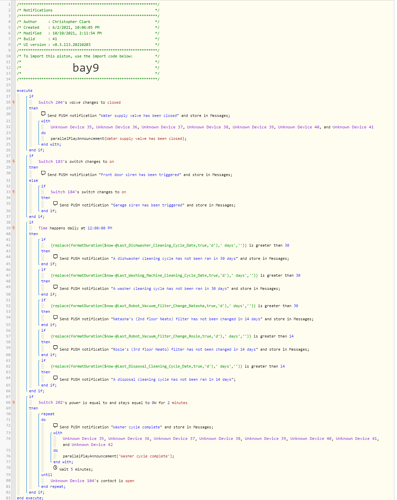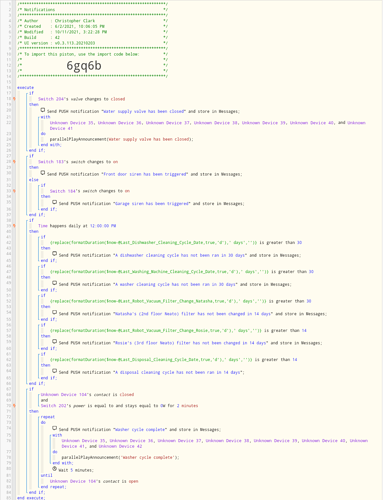Hello,
I’ve been on Webcore for several years between ST and HE. On HE Webcore, I have a chunk in a piston that shouldn’t fire unless only the conditions in the chunk are met but it’s behaving like a condition and triggering when other chunks in the piston fire. This is the only chunk that I have that does this and I QUADRUPLE verified that the comparison operator I’m using is under triggers not conditions.
To resolve this, historically, I just put the chunk in it’s own isolated piston and that seems to work, but as soon as I combine it with any other piston (like I did here, I get the conditional behavior). I’m just trying to put all my notifications in one place and this chunk is making that difficult.
Can somebody please review this to see if I’m doing something wrong or if there’s a bug with the way this “trigger” is being used as a condition?
As you can imagine, because the preceding chunk of the piston runs at 12:00 PM daily, you guessed it, my washer cycle is miraculously complete every day at that same time. I have placed this chunk in a bunch of different pistons and I’ll get a washer alert whenever any other chunks trigger in the piston.
I know at the end of the day, the workaround is just to keep it in an isolated piston, but I’d still like to understand if I’m doing something wrong or maybe I don’t have a firm concept of triggers vs conditions but I don’t feel like I would’ve made it this far in webcore if I didn’t understand that.



 . Thanks!
. Thanks!